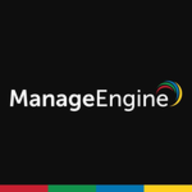

Splunk Enterprise Security and ManageEngine File Audit Plus are competing in the security and file auditing space. Splunk Enterprise Security appears to have the upper hand in analytics capabilities, handling vast amounts of data efficiently.
Features: Splunk Enterprise Security provides advanced threat detection, user behavior analytics, incidence response functions, making it suitable for comprehensive security information and event management. ManageEngine File Audit Plus specializes in tracking and reporting file changes, unauthorized access, and potential threats, offering insights for compliance and security monitoring.
Ease of Deployment and Customer Service: Splunk Enterprise Security requires a complex setup and skilled resources, but offers robust support after deployment. ManageEngine File Audit Plus offers straightforward installation with minimal technical intervention, supported by effective customer service, accessible for organizations with limited IT resources.
Pricing and ROI: Splunk Enterprise Security requires a higher initial investment due to its extensive feature set, promising a high ROI for organizations valuing detailed security insights. ManageEngine File Audit Plus is a budget-friendly option with quicker ROI, ideal for businesses focused on file integrity monitoring.

ManageEngine FileAudit Plus is an agent-based file auditing and reporting software. Monitor in real-time the changes to all files in the file system along with thorough reports on every activity as to 'who' did 'what', 'when' and 'from where'. Keep track of changes made to the files, file objects in the folders or sub-folders and shares. Watch out for any changes made to a particular type of file (for e.g. *.log) or choose to exclude servers and file types.
Any good organization's security policies would recommend the use of a real-time file monitoring tool to continuously monitor the system files and Compliance standards like PCI DSS (11.5), Sarbanes-Oxley (Section 404), FISMA (NIST SP800-53) specifically regulate the need to perform periodic checks for any unauthorized modification of critical files on Windows File servers (system files, configuration files or text files; and ensure a reporting activity for periodic security analysis or for forensics in the event of a security breach.
With FileAudit Plus, keep a detailed record of every file access and activity, get email alerts for critical / unusual activities, monitor file permissions, identify file owners and meet Compliance requirements.
Splunk Enterprise Security is widely used for security operations, including threat detection, incident response, and log monitoring. It centralizes log management, offers security analytics, and ensures compliance, enhancing the overall security posture of organizations.
Companies leverage Splunk Enterprise Security to monitor endpoints, networks, and users, detecting anomalies, brute force attacks, and unauthorized access. They use it for fraud detection, machine learning, and real-time alerts within their SOCs. The platform enhances visibility and correlates data from multiple sources to identify security threats efficiently. Key features include comprehensive dashboards, excellent reporting capabilities, robust log aggregation, and flexible data ingestion. Users appreciate its SIEM capabilities, threat intelligence, risk-based alerting, and correlation searches. Highly scalable and stable, it suits multi-cloud environments, reducing alert volumes and speeding up investigations.
What are the key features?Splunk Enterprise Security is implemented across industries like finance, healthcare, and retail. Financial institutions use it for fraud detection and compliance, while healthcare organizations leverage its capabilities to safeguard patient data. Retailers deploy it to protect customer information and ensure secure transactions.
We monitor all Log Management reviews to prevent fraudulent reviews and keep review quality high. We do not post reviews by company employees or direct competitors. We validate each review for authenticity via cross-reference with LinkedIn, and personal follow-up with the reviewer when necessary.